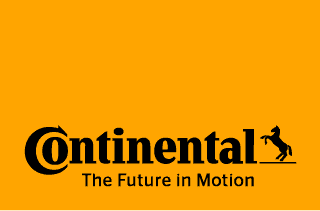E/E System Architecture

CES Systems Engineering is the right choice for the development of modern, customer-specific E/E architectures, which can be used in different vehicle variants.
Our specialists develop the appropriate technical E/E architecture based on your functional (logical) vehicle description. We ensure that this E/E architecture meets the desired standards. The development or further development of E/E architectures based on existing components is also possible.
Our specialists will be happy to advise you on creating and improving your E/E architecture and the associated development process.
Your benefits with our E/E-Architecture Service
- Our service is scalable to your wishes and needs. It is compatible with other services and products of Continental.
- You receive state of the art solutions using modern development tools and processes.
- Our E/E-Architecture solutions enable reuse of your components or existing (Continental) components and smooth integration up to a complete vehicle, thereby reducing total engineering cost and time.
- The developed E/E-Architecture is as flexible as you need it. New components can be integrated on your demand.
- We enable your staff to leverage the full potential of modern tools and development processes to cut down engineering time and cost.
Our E/E-Architecture Service Portfolio
| Topic | Content | Examples of Use |
|---|---|---|
| Logical E/E-Architecture | ||
| Technical E/E-Architecture | ||
| Communication | ||
| Wire Harness | ||
| Software Component Architecture | ||
| Hardware Component Architecture | ||
| Component Trade Study |
Direct Contact
Tel: +49 69 678 696 407
Email:
Relevant Links

Requirement Engineering
Requirements engineering deals with discovering, eliciting, developing, analyzing, verifying, validating, communicating, documenting and managing requirements. CES requirements engineers are specialists in mediating between the domains of customers, developers or suppliers to establish and maintain the requirements to be met by the system, function, software or hardware of interest.
Systems Engineering
Systems Engineering is an interdisciplinary approach to develop systems which are mostly complex. For CES this means the transformation of idea into vehicles. CES Systems Engineering provides engineering services, training and consulting for the innovation, concept and product development phases of a vehicle development focusing vehicle and vehicle system level.

Security & Privacy
Vehicles are connected with the world of internet of the things (IoT), which enables to use new functions within the vehicle. However, to be usable in mobility world, the vehicle systems must face several tough challenges in security and privacy.

Functional Safety (FSM)
Increasing complexity drives a the need for reliable functional safety management (FSM) in order to avoid or at least detect and mitigate malfunctions which would lead to any person being injured or killed.
Highlights
It seems we can’t find what you’re looking for.

